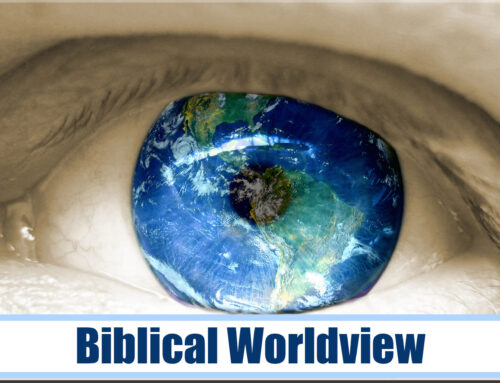Custodians of Creation
By Mark G. Johnston, Editor
Reprinted from The Banner of Truth Magazine, Issue #718, July 2023
Christians, it seems, have been strangely silent in recent years over the debate surrounding the stewardship of planet earth and its resources. Perhaps it is because the issue is seen as the domain of the Green Party and those who share their concerns; but it is the church that ought to be in the vanguard over this concern. Why?—Because the opening chapters of Genesis not only describe the creation of all things—visible and invisible—but record in detail the moment God entrusted his entire creation to the care of Adam and the race he would beget.
More than this, the Bible repeatedly and in a variety of ways declares that God’s glory is bound up with the entire created order. The whole earth will be ‘filled with the glory of the Lord’ (Num. 14:21), the psalmist prays in respect of God’s Messiah King, ‘May the whole earth be filled with his glory’ (Psa. 72:19). And, from the outset, it is clear that humanity—created in the image and likeness of God—is called to co-labour with God to bring out the glory that God has embedded in the work of
his hands.
This calling is stated explicitly in the command God gave our first parents when he placed them in the garden of Eden: ‘God blessed them. And God said to them, “Be fruitful and multiply and fill the earth and subdue it and have dominion over the fish of the sea and over the birds of the heavens and over every living thing that moves on the earth.” (Gen. 1:28). This command is reinforced in the following chapter when God says, ‘The Lord God took the man and put him in the garden of Eden to work it and keep it’ (Gen. 2:15). Indeed, the Hebrew words translated ‘work’ and ‘keep’ have religious overtones and are used elsewhere in the Old Testament in relation to priestly service in the Tabernacle and then the Temple. So, even after the fall of Adam, the calling of God’s image-bearers in this world is to preserve and cultivate it in a way that reflects his glory.
This principle was also woven into the very fabric of the life of God’s people as the nation of Israel. Throughout the exposition and application of the Decalogue in Exodus chapters 21-23 God not only specifies appropriate conduct towards fellow human beings within the Israelite community; but also, appropriate care for livestock, limits to the exploitation of natural resources, as well as sabbaticals for fields to ensure long-term productivity.
The underlying principle established in that ancient agrarian society is intended to lay the foundation for human responsibility in the use of God-given resources throughout the progress of history. Not only the world and all that it contains, but also the cosmos of which we are a part, are intended not for selfish exploitation by our race, but for wise and thoughtful stewardship. This is a key part of our calling as a race and, in a signal fashion, it ought to be displayed among those who belong to God’s redeemed humanity.
We might be forgiven for demurring at this suggestion. After all, is not our calling to pray and labour for the extension of God’s Kingdom on earth in terms of its spiritual progress—not only through the salvation of the lost; but also, the spiritual growth and usefulness of the redeemed? This is undoubtedly true; but there is no contradiction between spiritual renewal and the transformation of life to which it will ultimately lead. The new heavens and the new earth will not merely be Eden redivivus; they will be the expression of God’s original creation as it would have become if Adam had not sinned. It will be the place where it can be most fully declared, not only that, ‘…the earth will be filled with the knowledge of the glory of the Lord as the waters cover the sea;’ but that the entire cosmos will overflow with his glory.
No more ‘thorns and thistles’ to contend with. Our labour in that renovated world and universe will no longer be ‘by the sweat of our face.’ Never again will we be haunted—even as God’s children—with the thought of returning to the dust from which we have been made (Gen. 3:19).
In all this Jesus is both our guarantor and our incentive in this calling. It is not without significance that, to become our Redeemer, it was necessary for him to assume our nature. He had to be made like his brothers in every way, except for sin. He had to experience life in its totality—with all its exigencies—right down to the anguish and perplexity of death: ‘even death on a cross’ (Phil. 2:8). He was sent by the Father, ‘so that by the grace of God he might taste death for everyone.’ (Heb. 2:14). It was Christ uniquely who, through his coming, ‘abolished death and brought life and immortality to light through the gospel’ (2 Tim. 1:10). And the exalted Christ will lead his redeemed people and the heavenly host to usher in the completed new creation on his return.







Leave A Comment
You must be logged in to post a comment.